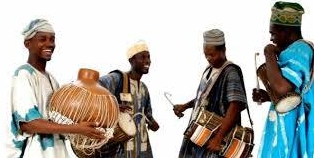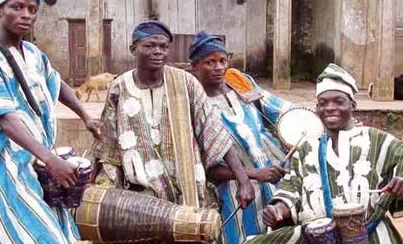
support@yorubalibrary.com
+2348073529208, 07038599574

Yoruba music holds a prominent place in Nigerian culture, reflecting the deep-rooted traditions and history of the Yoruba people. From spiritual ceremonies to festive occasions, Yoruba music is integral to various aspects of life. This article showcases the significance of Yoruba music and explores different types, including Fuji, Apala, and Juju, with examples of notable artists.
Significance of Yoruba Music
Yoruba music is more than entertainment; it is a medium of expression, communication, and preservation of cultural heritage. It serves as a vehicle for storytelling, passing down myths, legends, and historical events from one generation to the next. The rhythmic patterns and lyrical content often contain moral lessons, philosophical insights, and social commentary, making Yoruba music a vital part of community life.
Fuji Music: The Pulse of Modern Yoruba
Fuji music emerged in the late 20th century, evolving from the traditional Sakara music and Islamic praise songs. Known for its fast-paced drumming and energetic performance style, Fuji music resonates with the younger generation.
• King Wasiu Ayinde Marshal (K1 De Ultimate): A pioneer of modern Fuji, K1 De Ultimate has transformed the genre with his innovative approach, incorporating contemporary sounds while maintaining its traditional essence.
• Alhaji Sikiru Ayinde Barrister: Often credited as the father of Fuji, his contributions laid the foundation for the genre’s development and popularity.
Apala Music: The Soulful Sound of Yoruba
Apala music is characterized by its slow, deliberate beats and deep, resonant vocals. Traditionally used in religious and social gatherings, Apala has maintained its relevance through its soulful and introspective melodies.
• Haruna Ishola: A legendary figure in Apala music, Haruna Ishola’s powerful voice and poetic lyrics have left an indelible mark on the genre.
• Ayinla Omowura: Another iconic artist, Ayinla Omowura’s dynamic style and engaging performances made Apala widely popular during his time.
Juju Music: The Harmony of Tradition and Modernity
Juju music blends traditional Yoruba rhythms with modern instruments like the electric guitar and keyboard. This fusion creates a harmonious and danceable sound that appeals to a broad audience.
• King Sunny Ade: Renowned for his mastery of the guitar and charismatic stage presence, King Sunny Ade has been a major force in popularizing Juju music both in Nigeria and internationally.
• Ebenezer Obey: With his unique blend of Juju and highlife music, Ebenezer Obey has captivated audiences for decades, known for his thoughtful lyrics and melodious tunes.
Waka Music: The Voice of Women
Waka music, traditionally performed by women, combines Islamic influences with Yoruba musical styles. It is often performed at weddings, naming ceremonies, and other celebrations.
• Salawa Abeni: Known as the "Queen of Waka," Salawa Abeni’s powerful voice and compelling lyrics have brought Waka music to the forefront of Nigerian music.
Conclusion
Yoruba music, with its diverse genres like Fuji, Apala, Juju, Sakara, and Waka, plays a significant role in preserving and promoting Yoruba culture. Each genre, with its unique characteristics and notable artists, contributes to the rich musical heritage of the Yoruba people. By understanding and appreciating these musical forms, we can better appreciate the cultural depth and historical significance of Yoruba music.

The unique styles of Yoruba Bata and Dundun dances…

The emergence of new age social media and impact i…